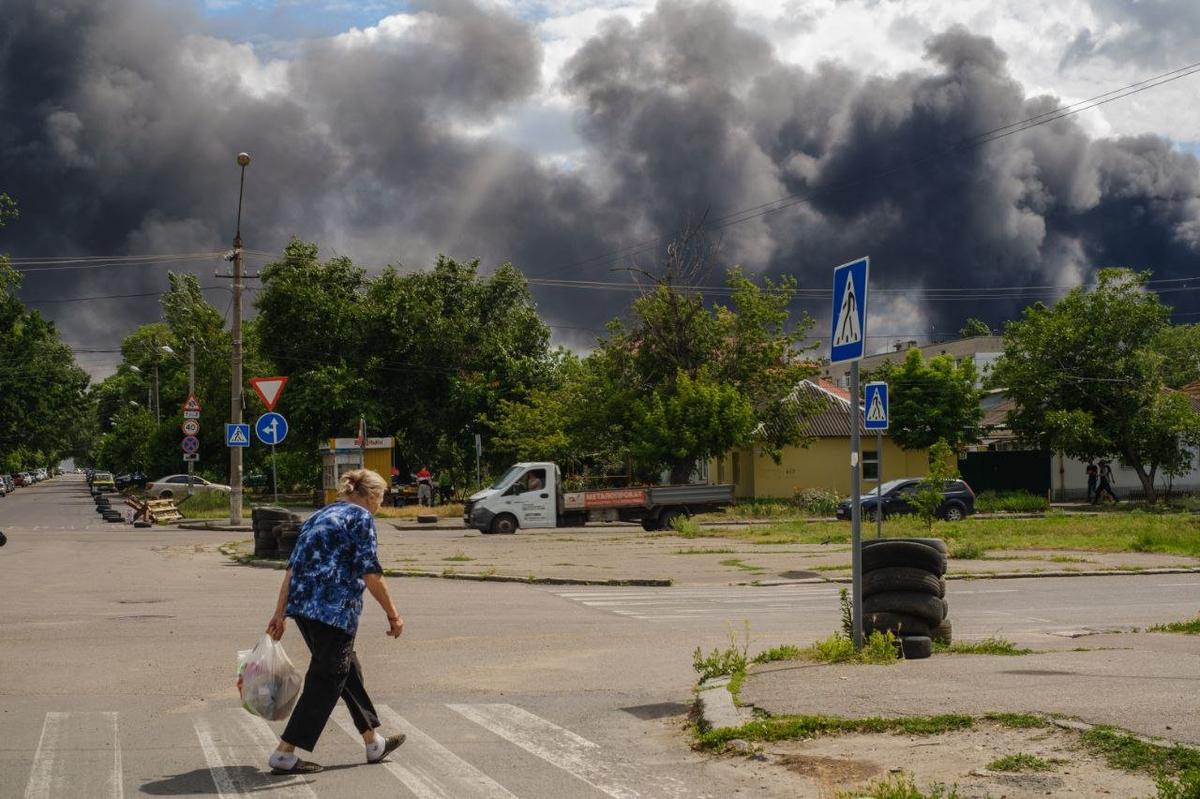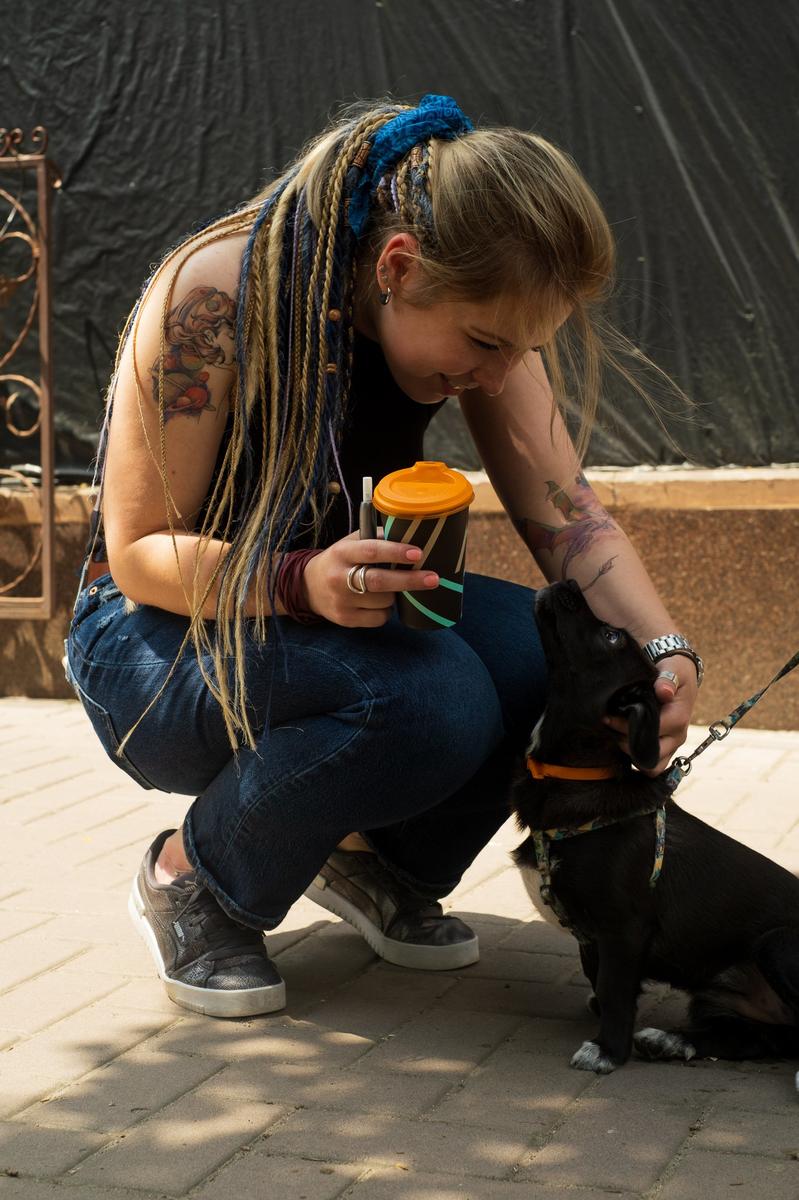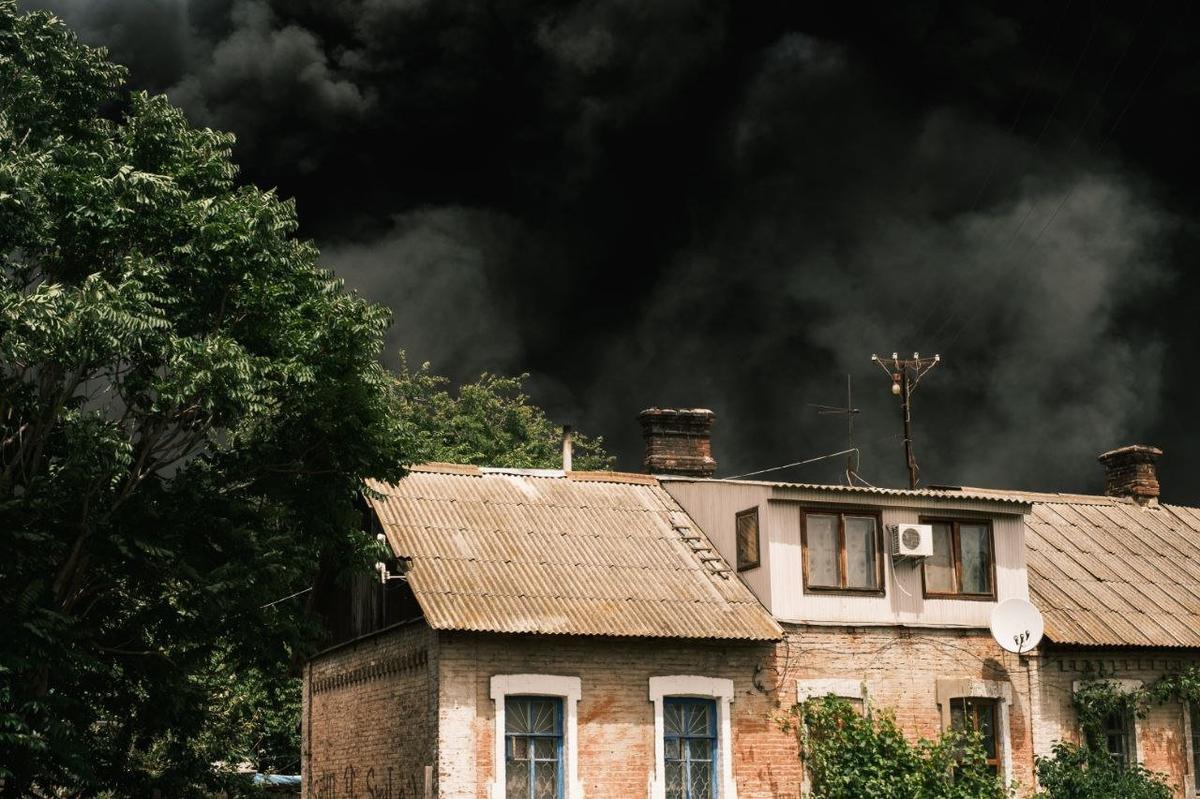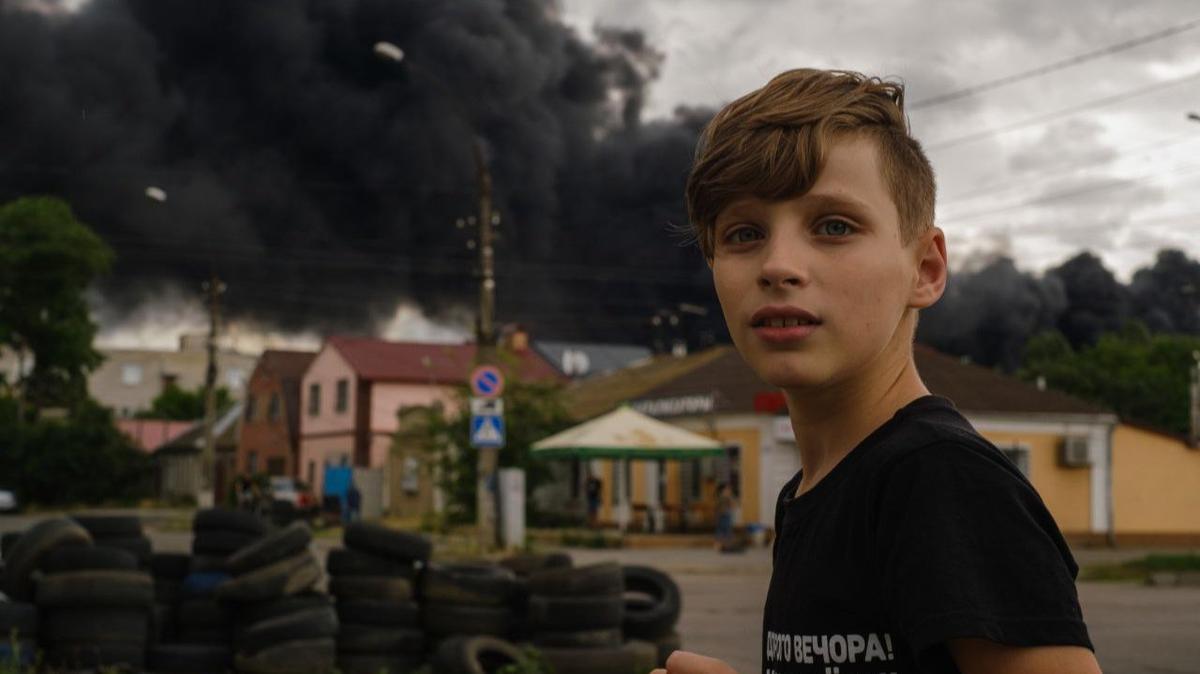I am writing this story from the southern outskirts of Mykolayiv, 25 km away from the occupied territory, on the seventh floor of a panel house, while accompanied by the sounds of missile strikes. To be fair, today, before lunch, there were only three strikes. “Only”— because on the day before that, 22 June, Russians set a record: from seven to nine Kalibr class missiles hit the city. Estimated cost of one missile is $6,5 million. Thus, the entire firework cost Russia about $50 million.
What was achieved? The biggest damage: storage tanks filled with sunflower oil were destroyed. (Novaya Gazeta. Europe reported on Russian troops destroying and stealing Ukrainian agricultural products in the story “Iron bread” — editor’s note)
“I don’t know who’s helping us more: God or their negligence,” says Dmytro Pletenchuk, spokesman of Mykolayiv’s military commandant office.

Photo by George Ivanchenko
The destructive power of Kalibr is enormous, shall we just remember the consequences of the regional administration building getting hit back on 29 March. Most of the building were destroyed. There was nothing left of the regional military administration head’s office. Head of the Mykolayiv region Vitaliy Kim — presumably the main target — did not get hurt only because he was not in the office at the time. “Russians just forgot to re-set their watches to daylight saving time, which Ukrainians had done,” remembers Pletenchuk. But a receptionist, who had come to work, like one is supposed to, before the boss, died; only her head and one leg were found, separately… All in all, the strike killed 36 administration officials.
Vitaliy Kim is a super speaker and an optimist, TV’s favourite, his greeting “Good evening, we are from Ukraine!” has long since become a meme repeated by the entire country. Yet, Mykolayiv’s civil activists regard him with scepticism. They are way more appreciative of General Marchenko, who, according to them, was unfairly persecuted by the government before the invasion. But it was him, they say, who turned out to be “the only adult” around — he took the reins of the city defence and saved Mykolayiv. The activists do agree on one thing: Kim is the embodiment of Mykolayiv’s spirit, his legs in colourful socks carelessly thrown over a table, widely famous due to being shown on TV, and his smile — this is what every citizen of Mykolayiv is like. The relaxed ease and the love of life are present in everyone, and even war time will not make them let these traits go.

Marichka Kudrynskaya. Photo by George Ivanchenko
Marichka Kudrynskaya, a short, giggly girl with colourful dreads, a doctor during peacetime and currently a volunteer, provides frontlines with medical supplies while constantly cracking jokes. Marichka’s common-law husband was killed at the Okhtyrka front, near the Sumy region. She says that before the big war they were “deliriously happy”. She found out about his death on 8 March, and by 9 March, she had already started organising a volunteer team — a medical unit of “NIKO volunteers”. Marichka was born and grew up in Donetsk, she fled the city in 2014. “I didn’t really like Mykolayiv until 24 February. It isn’t ‘urban’ enough for me, I guess. But when tanks showed up on the outskirts of the city, I decided: no, I won’t let anyone take it.
I also didn't like kids, before. And now I would very much like to birth as many kids as possible, and for all of them to hate Russians,” says Marichka, laughing.
Here, volunteers are responsible if not for everything, then for most things. Ironically, the biggest Mykolayiv volunteer centre is located in the House of Navy Officers. It was built in the first half of the 19th century and back then served as a cultural centre for the officers of the Imperial Russian Fleet. As of late, the building dilapidated and even earned the title of the “sad little memorial to the former glory”. Now, a new life has taken hold. On 25 February, the House of Navy Officers saw people prepare Molotov cocktails under the guidance of the famous Mykolayiv jazzman Volodymyr Alekseyev — people were getting ready to defend the city. Today, this building is something in between a squatting place and a warehouse. Dozens of people scurry around, sorting tons of humanitarian aid and even finding the time to talk to each other. After the war, painters are planning to open a Pompidou Centre branch here, says the volunteer centre coordinator Dmytro Davydenko, a maritime pilotage specialist in peacetime.
In the meantime, Mykolayiv is semi-surrounded by occupied territories. The Kherson region, which supplied the city with food, is completely cut off. Mykolayiv still does not have potable water — the water supply system was damaged during the warfare, and it still has not been completely fixed. Technical water, nauseatingly salty, flows from the tap. Some of the citizens still collect water from rain gutters…

Photo by George Ivanchenko
The city is under constant shelling but, still, manages to not look like a city located near the war front. There are many people outside; they are not frowning or looking focused on the task at hand, they look calm, they do not seem to be in any hurry. On Wednesday, 22 June, against the background of thick black clouds of smoke from the fires, you could see people sitting in cafes, walking their dogs, riding bicycles, going back from the store, or just going for a walk. There are plenty of kids in the streets.
Practically near the epicentre of one of the explosions, just a few metres away, a teenage girl is feeding a dog, while her mother is hanging the laundry. The older women sitting near building entrances, traditionally vigilant towards strangers, are not interrogating us, instead we are exchanging jokes. Carelessness? More likely, it is sheer confidence: the “second army in the world” with its missiles will not get a single piece of Mykolayiv.

